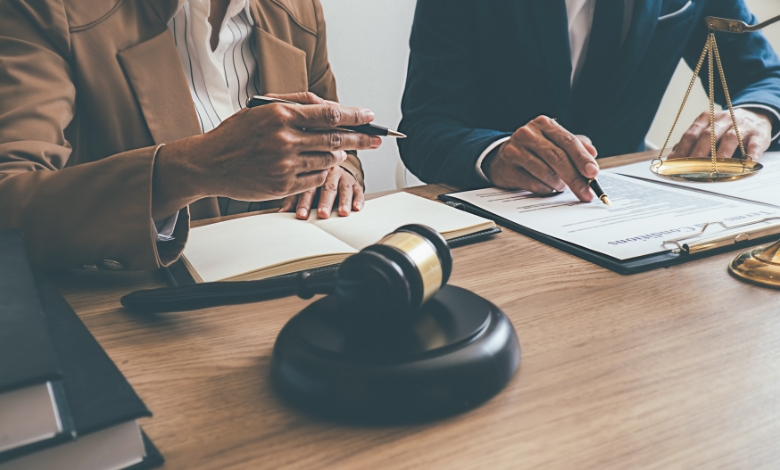Can Lawyers Be Fair? Addressing Bias in the Legal System

The legal system is often viewed as the ultimate arbiter of justice, but what happens when that very system harbors bias? Can lawyers truly be fair if they are influenced by their own implicit beliefs and societal stereotypes? These questions loom large in a world where fairness should reign supreme. Bias can seep into every corner of the legal process, from courtroom decisions to jury selections. As we navigate this complex landscape, it’s crucial to explore how bias manifests in law and what steps can be taken toward a more equitable system. Join us as we delve into these pressing issues surrounding fairness in the legal profession.
Understanding Implicit Bias and Its Impact on Lawyers
Implicit bias refers to the unconscious attitudes or stereotypes that affect our understanding, actions, and decisions. Lawyers are not immune to these biases; they can influence case outcomes in subtle yet profound ways.
For instance, a lawyer may unconsciously favor clients who share their background or beliefs. This can lead to unequal representation and missed opportunities for justice.
In the courtroom, implicit bias often manifests in jury selection and witness credibility assessments. A lawyer might unconsciously judge a witness based on race or socioeconomic status rather than the facts presented.
The implications extend beyond individual cases. When systemic bias is present among legal professionals, it undermines public trust in the legal system as a whole. Recognizing these biases is crucial for fostering fairness within law practices and ensuring equitable treatment of all clients.
Case Studies: Examples of Bias in Legal Cases
Case studies reveal the unsettling reality of bias within the legal system. One notable example involved a high-profile trial where jurors exhibited racial biases against the defendant. The jury’s preconceived notions influenced their decision-making, leading to a verdict that many believed was unjust.
In another instance, a study showed that women lawyers faced harsher scrutiny in court than their male counterparts. This discrepancy not only affected courtroom dynamics but also had lasting implications for career advancement and client relationships.
Moreover, there have been cases involving sentencing disparities based on race and economic status. Defendants from marginalized communities often receive disproportionately harsh sentences compared to those with similar charges from more affluent backgrounds.
These examples highlight how inherent biases can seep into judicial processes, affecting outcomes and perpetuating inequalities within society’s legal fabric.
The Role of Diversity and Inclusion in the Legal Profession
Diversity and inclusion are essential components for a fair legal system. A varied representation within the legal profession leads to different perspectives on cases, which can sometimes alter outcomes. When lawyers come from diverse backgrounds, they bring unique life experiences that shape their understanding of justice.
This variety helps challenge stereotypes and biases inherent in traditional practices. It encourages open dialogue about systemic issues often overlooked by a more homogenous group.
Moreover, inclusive environments foster creativity and innovation in problem-solving. They allow for better communication with clients from different cultures, enhancing trust and rapport.
Law firms focusing on diversity also attract top talent who value equality. This ultimately strengthens the entire profession by ensuring it reflects society’s complexities. Embracing diversity is not just ethical; it’s a crucial step toward achieving true fairness in the legal landscape.
Strategies for Addressing Bias in the Legal System
Addressing bias in the legal system requires a multifaceted approach. First, implementing regular training sessions for all legal professionals can raise awareness of implicit biases and their impacts.
Encouraging open dialogues about experiences related to bias fosters an environment where individuals feel safe discussing sensitive topics. This can lead to greater understanding and collective solutions.
Moreover, establishing mentorship programs that prioritize diversity promotes inclusion from within. Diverse perspectives enhance decision-making processes and reduce groupthink.
Technology also plays a vital role. Utilizing data analytics can help identify patterns of bias in case outcomes or sentencing practices, providing valuable insights for systemic change.
Engaging with community organizations helps bridge gaps between the legal profession and the public it serves. By cultivating these relationships, lawyers can gain deeper insights into societal issues influencing justice delivery.
The Importance of Continuous Education and Training on Bias
Continuous education and training on bias are vital in the legal profession. Lawyers must stay informed about how biases can creep into their work, affecting case outcomes.
Regular workshops and seminars help attorneys recognize their own implicit biases. This self-awareness is a key step toward fostering fair practices.
Moreover, updated training programs often include diverse perspectives. Engaging with various cultures leads to greater empathy and understanding among lawyers.
Legal professionals must also be equipped with tools to challenge systemic biases within the justice system. An educated lawyer becomes an advocate for change, ensuring a more equitable environment for clients.
Ongoing education creates a culture of accountability too. When firms prioritize bias training, they signal that fairness matters deeply in their practice.
Conclusion: Creating a More Fair and Just Legal System
The journey toward a fair and just legal system requires ongoing commitment. Addressing bias, whether implicit or explicit, is crucial for the integrity of law. It starts with acknowledging that lawyers, like all humans, are susceptible to biases shaped by personal experiences and societal influences.
Diversity in the legal profession plays an essential role. When teams reflect varied backgrounds and perspectives, it enriches discussions and decisions. This diversity fosters understanding among different communities and helps mitigate bias.
Implementing effective strategies is equally important. From continuous training on recognizing biases to ensuring accountability at every level, these measures can significantly enhance fairness in legal proceedings.
Continuous education empowers lawyers to recognize their own blind spots while equipping them with tools to combat bias effectively. By fostering open dialogues about these issues within the profession, we create an environment where fairness thrives.
Creating a more equitable legal landscape demands collective effort from everyone involved—lawyers, judges, lawmakers—and society as a whole must participate actively in this transformation process. Only then can we hope for a truly just system that serves all individuals fairly.







